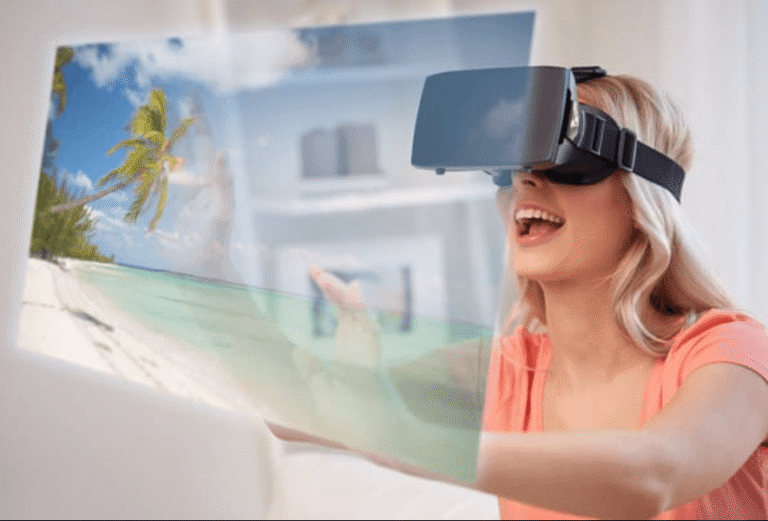Virtual reality is transforming the travel industry by offering unique ways to explore and experience destinations. With immersive virtual tours, travelers can visit far-off places and luxurious accommodations from the comfort of their homes. This technology not only enhances travel planning but also influences marketing strategies. As companies adopt VR to engage potential customers, the implications for future travel experiences are profound. What changes might this bring to how we choose our next adventures?
Virtual Tours of Destinations
Virtual tours of destinations have transformed the way travelers explore the world, offering immersive experiences that were once unimaginable.
These virtual experiences provide captivating destination previews, allowing potential visitors to wander through vibrant streets, admire breathtaking landscapes, and discover hidden gems.
See also: How Technology Is Transforming the Entertainment Industry
Enhancing Travel Planning With VR
As travelers increasingly seek unique and personalized experiences, the integration of virtual reality (VR) into travel planning has emerged as a game-changer.
VR allows users to explore destination previews, enabling them to craft personalized itineraries that resonate with their preferences.
This innovative approach transforms how individuals envision their journeys, fostering a deeper connection to potential destinations and empowering them to make informed choices.
Immersive Hotel Experiences
The integration of immersive technology in the hospitality sector is revolutionizing the way guests experience hotels before they even arrive.
Virtual reality amenities allow potential visitors to explore immersive environments that showcase room layouts, stunning views, and unique features.
This engaging preview cultivates excitement and enables travelers to select accommodations that resonate with their desires, ultimately enhancing their overall travel experience.
VR in Travel Marketing and Promotion
An increasing number of travel companies are harnessing the power of virtual reality to enhance their marketing and promotional strategies.
By integrating immersive experiences into travel advertisements, they invite potential travelers to explore breathtaking destinations from the comfort of their homes.
This innovative approach not only captivates audiences but also ignites wanderlust, empowering individuals to envision their next adventure with unparalleled freedom and excitement.
Conclusion
As virtual reality continues to reshape the travel industry, some may argue that nothing compares to the tangible experience of travel. However, VR serves as a powerful catalyst for inspiration, igniting dreams of far-off places and allowing travelers to embark on explorations before they even leave home. By bridging the gap between imagination and reality, VR not only enhances planning but also deepens emotional connections, making the journey to adventure more accessible and captivating than ever before.

